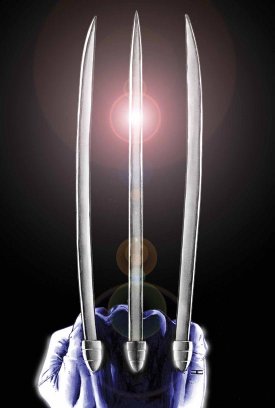Like
an episode of a good television show, Astonishing X-Men
#1 opens with one heck of a teaser. We see a child's
nightmare, but it may take a whole season before we understand
its implications for our heroes. The television season comparison
is appropriate not just because of the serial nature of
comics, but because with the brilliant but often slow John
Cassaday on art, it could be a while before this (allegedly)
12-issue run gets completed.
For
Joss Whedon fans, that's not necessarily surprising after
his work on Fray, and they'll wait for it. But should
the average comics reader?
Absolutely.
This
is the book that plays heir to Grant Morrison's run on New
X-Men. The style may be different, but in just a few
pages Whedon makes it clear that he gets what was going
on in that book, acknowledges it and moves on. Here, the
fight over Jean Grey's memory makes a lot more sense than
the muddled out-of-character thing that Chuck
Austen wrote. In one line of dialogue, Whedon sums up
the soap opera without denying how Morrison had wrapped
it up.
To
fulfill his own interests, he also brings Kitty Pryde back
front and center to the X-Men. Her presence brings up the
always sticky issue of how much time has actually passed
in the existence of these heroes. As she walks through the
front hall of the Academy, she remembers her early days
with the team, a gawky girl who grew into a young woman
through several trials by fire. Not unlike, of course, a
certain vampire slayer.
But
Kitty is not Buffy, and Whedon has found a very logical
reason for her to be part of his take on the mutant superheroes.
(Aside from she should never have left.) While Emma Frost
wants to continue the dream of mutant/human peace through
education and non-violence, a new more assured Scott Summers
has a better point. For too long they've focused on being
mutants and all their differences. It's time to get back
to what they once were: superheroes.
Of
course, they're still mutants, and that definition of their
powers isn't going to go away. But Scott sees their colorfully-clad
personas as goodwill ambassadors, one reason why Kitty's
presence will prove so integral to the team. She has the
face of normalcy, a face that a disdainful Emma Frost could
never achieve. But at least under the new era of Whedon
and Cassaday, The White Queen's clothes no longer defy the
laws of physics.
Everybody
gets at least one good character moment, not that you'd
expect anything less from Whedon. But some of those moments
belong to the astounding Cassaday, who makes all of these
characters seem real in their body language and expressions.
Even
when the team suits up back in the new/old spandex ("all
the black leather is making people nervous"), Cassaday makes
it a very real moment. He's one of the rare artists that
allows you to picture what somebody might actually look
like in that stuff. With Cassaday, it's not as silly-looking
as you might think. Though Wolverine probably begs to differ.
If
there's a problem with the book, it's that Whedon is taking
his sweet time getting things rolling. Not his fault, really,
it's just one reader's eagerness to see where it's all headed.
In a couple of places, he gives into word play just a little
too easily - Cyclops actually says, "we have to be astonishing."
That's
a hard adjective to live up to. Jump aboard and see if Whedon
and Cassaday can do it.
Rating:







